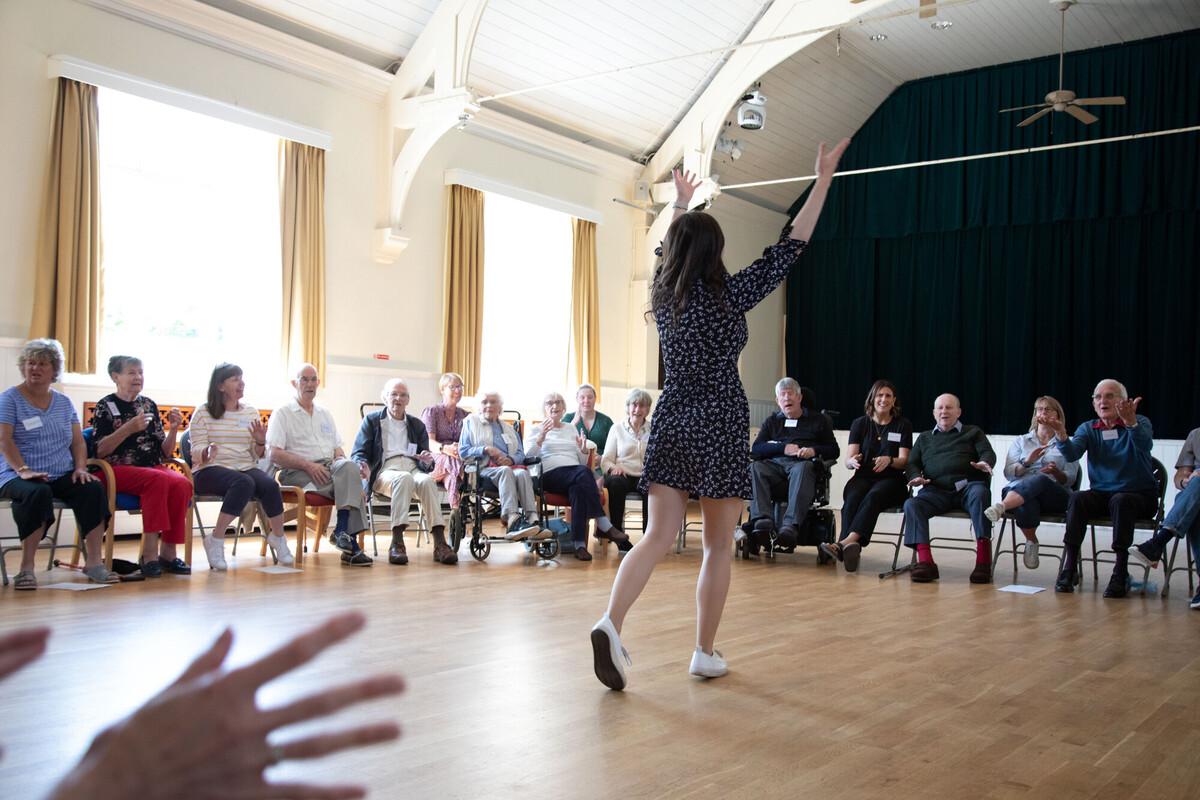While electricity and gas bills are sky-high, it’s good to uncover some ways to cut energy costs and reduce our environmental impact this year.
A recent ONS survey* reported over half (55%) of disabled adults find it difficult to afford their energy bills. Here are tips for homeworkers that could be helpful to others too.
The advice has been put together by a new partner to the Stroke Association – the working from home experts Posturite. Let’s take action and make small, easy, affordable energy-saving changes. These can help you keep warm (essential if you’re unwell), reduce bills and feel more comfortable.
Your technology
If you’re working from home or even just have a personal computer, you’re potentially using a fair amount of energy. But there are things you can do to save the energy used by those devices:
- It takes 77% less energy to use a laptop than a desktop computer.
- Say no to standby: turn off your computer completely at the end of the day. Computers still use 10-60% of power even when on standby.
- Use a power strip for your office equipment to easily turn multiple devices on and off at the wall, all at once.
- An average printer left on standby mode costs almost 3 x more than a printer in off mode does!
- Review your computer screen brightness: the very highest setting uses more energy
plus puts you at risk of eye discomfort and headaches. - Sleep tight: to save battery, set a shorter duration in your system settings for when your PC sleeps.
- You can also turn on ‘Battery Saver’ to temporarily turn off some things that use a lot of power, such as apps you’re not actively using.
- For the few times you don’t need the internet, turn on airplane mode in your settings too.
- Don’t charge your phone all night long! Mobile devices only take approximately 2-4 hours to fully charge. Anything over this is wasted energy.
See more tips presented as an infographic on the Posturite website.
Your body
Keeping moving as much as you are able during your working day = win, win, win.We know this can be tricky with reduced mobility. But even little things can make a difference. If you can get up from your seat frequently, change posture and move around your home:
- It boosts productivity
- It reduces how much you feel the cold
- It’s fantastic for your overall physical and mental health
Depending on your mobility and fatigue levels, you could:
- Walk around or move to a different chair to take phone calls
- Switch to a sit-stand desk; standing for any length of time can make a difference – Posturite specialise in these ‘standing desks’
- Stick the radio on and have a dance break! Even dancing while seated will warm you up more than sitting still.
- Get an office chair which enables movement
- Climb the stairs
- Use a fitness tracker to count steps, set a goal that feels achievable for you
- Compete with a friend for daily steps
- Do some stretches while watching a webinar or the TV, you can do these seated or standing
Your environment
Just like with your computer and other devices, there are ways to reduce the energy you use around the house.
Light
The average UK household electricity consumption made up by lighting is 11%.
- How about switching to LED light bulbs? They use up to 90% less energy than conventional halogen bulbs. The ‘lumen value’ tells you how bright they’ll be.
- Avoid dark lampshades - they can absorb some of the light a bulb emits.
- Could you use a desk lamp, instead of lighting the whole room?
Heat
- Make sure your boiler is serviced (and the boiler flow temperature adjusted) and your radiators are bled.
- Set downstairs radiator valves to around number 5, and upstairs to 2, as heat will rise.
- Only heat the rooms that you’re using.
- Minimize heat loss by 15-17% by drawing your curtains at dusk.
- Invest in a hot water bottle and a blanket. Microwaveable hand warmers are another option.
- Get a cheap rug to keep your feet warmer if you have wooden or tiled floors.
- The biggest culprits for draughts are doors, windows, cracks in the walls, letterboxes, skirting boards, fireplaces, loft hatches and skirting boards. Get a door snake draught excluder, for as little as £10. Seal window and door apertures with weatherstrips – you’ll still be able to open them!
- Save over £330 a year by insulating your loft (in a mid-terraced house. £590 saving in a detached house).
- Move furniture that is blocking your radiators.
Your lifestyle
In this last section, we’ll cover a few other ways you can save energy and stay warm.
- Look after your working from home mental health, and if you’re feeling isolated as well as chilly, go to your town’s designated Communal Warm Place. These could be in a library or a gym. You might even occasionally treat yourself to a sociable lunch in a cosy café if you can.
- Fuel your body with nutritious food at home, such as a warm bowlful of porridge which helps you feel full longer.
- Microwave ovens use up to 80% less energy than electric or gas ovens. Be sure to have at least one warm meal per day.
- Slow cookers are another energy-efficient way to cook.
- If you do want to use an oven, avoid storing baking trays in it, as this limits the flow of air and increases cooking times. Clean it too! A clean oven will reach the desired temperature faster.
- Time for a brew? Only boil as much water as you need: it saves electricity and boils the water more quickly. OR boil the kettle in the morning and keep remaining hot water in a thermos flask – to save the cost of boiling it again.
- Regular hot drinks (and getting up to make them!) are a good idea to stave off the cold. Tried ginger tea? Ginger is loaded with antioxidants (compounds that can help prevent stress).
- Love layers: wearing more layers of clothing in winter keeps us warmer than wearing just one thick piece of clothing, as the layers trap warm air between them.
Note that the NHS advises “If you're not very mobile, are 65 or over, or have a health condition such as heart or lung disease, heat your home to at least 18 °C.”
Visit the Posturite homeworking hub at posturite.co.uk/home-office
Click to find out why Posturite is supporting the Stroke Association and more about their 'Support stroke sale'.
* If you’d like to read the ONS survey we mention in the introduction, you can do that here.
Disclaimer: The Stroke Association provides the details of other organisations and apps for information only. Inclusion on My Stroke Guide does not constitute a recommendation or endorsement.
Other blogs in this category

Community, connection and coping - support for your mental health after stroke
Having stroke can impact on your daily life, relationships, and…
Learn more

Feelings of grief after a stroke
The process of coming to terms with a stroke diagnosis can be…
Learn more
